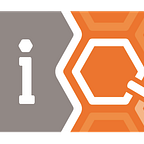80% of companies will adopt intelligent automation by 2025, how?
The Information Technology and Software Industry has undergone significant changes over the last quarter of a century. With increased modernization and development in the functioning of computer operations, there has been a shift from manual human labour operations to the incorporation of automated work functions. One of the primary functions through which automation has been incorporated into the business mold is through Artificial Intelligence.
Artificial Intelligence involves the systems and mechanisms associated with converting data operations into usable facts and figures which can not only be used for reference but also a proper representation of company image. Software systems capable of handling and manipulating data and orienting work functions are developed continuously. Software Industry estimates suggest that more than 80% of companies will adopt Intelligent Automation by 2025.
Sectors using Intelligent Automation
Following are the primary sectors where intelligent automation has not only forayed but significantly changed the landscape of functioning in the business environment-
Banking
Intelligent Automation has found relevant applications in the banking industry. It has streamlined banking operations, enabled easier maintenance and storage of data operations and improved customer experiences. It has had a major influence on both the commercial and retail banking sectors. Surveys suggest that more than 15% of the companies in the Information Technology (IT) sector have adopted automation. On the other hand, more than 55% of the companies in this sector have adopted Robotic Process Automation (RPA).
Retail and Consumer Products
The retail and Consumer Product Industry has been influenced by Intelligent Automation. Understanding the requirements of the customer, delivering their needs and fulfilling their demands is easily operable through intelligent automation. Customer experiences have improved significantly. Brands and Retailers are adopting automation to identify employee needs, manipulate their products according to such needs and establish measures to deploy the products and services to the doorstep of the consumer. Surveys suggest that more than 40% of the companies in this sector have adopted intelligent automation with the expectation that more than 80% of the companies will do so by 2025.
Energy and Utilities
Since the world craves clean and sustainable sources of energy, facilitating centres have been developed to assist the sector to grow. Such growth is substantiated only through intelligent automation of work functions. Intelligent Automation has incorporated measures to help the energy and utility sector grow through planning and forecasting measures, energy conversion processes, optimized utilization of non-renewable sources of energy, managing digital interfaces and handling customer grievances.
Pharmaceutical Industry
A generation of healthcare products has developed through the incorporation of intelligent automation. Patient Experience has improved through increased customer problem identification and taking measures to improve the employee experience. One of these major trends of intelligent automation, or using machine learning and AI is to improve processes in inpatient care. In the survey, nearly 40% reported their organizations have deployed automation and it is working as expected.
Automation in healthcare is focused on data gathering, wherein 76% per cent of respondents have implemented or had plans to deploy big data automation for gleaning, processing and storing data. Many companies like One Mg and Netmeds have evolved and grown in the Indian Market to emerge as the principal sellers of medicines online. They utilize artificial intelligence to help customers streamline their needs and medical requirements. Therefore Intelligent Automation has revolutionized the pharmaceutical sector and figures suggest that more than 80% of the companies will adopt such automation by 2025.
Conclusion
Therefore Intelligent Automation is expected to make the data recording and representation of facts and figures more systematic in the primary and secondary sectors in the economy.
Follow more such amazing blogs on our website
